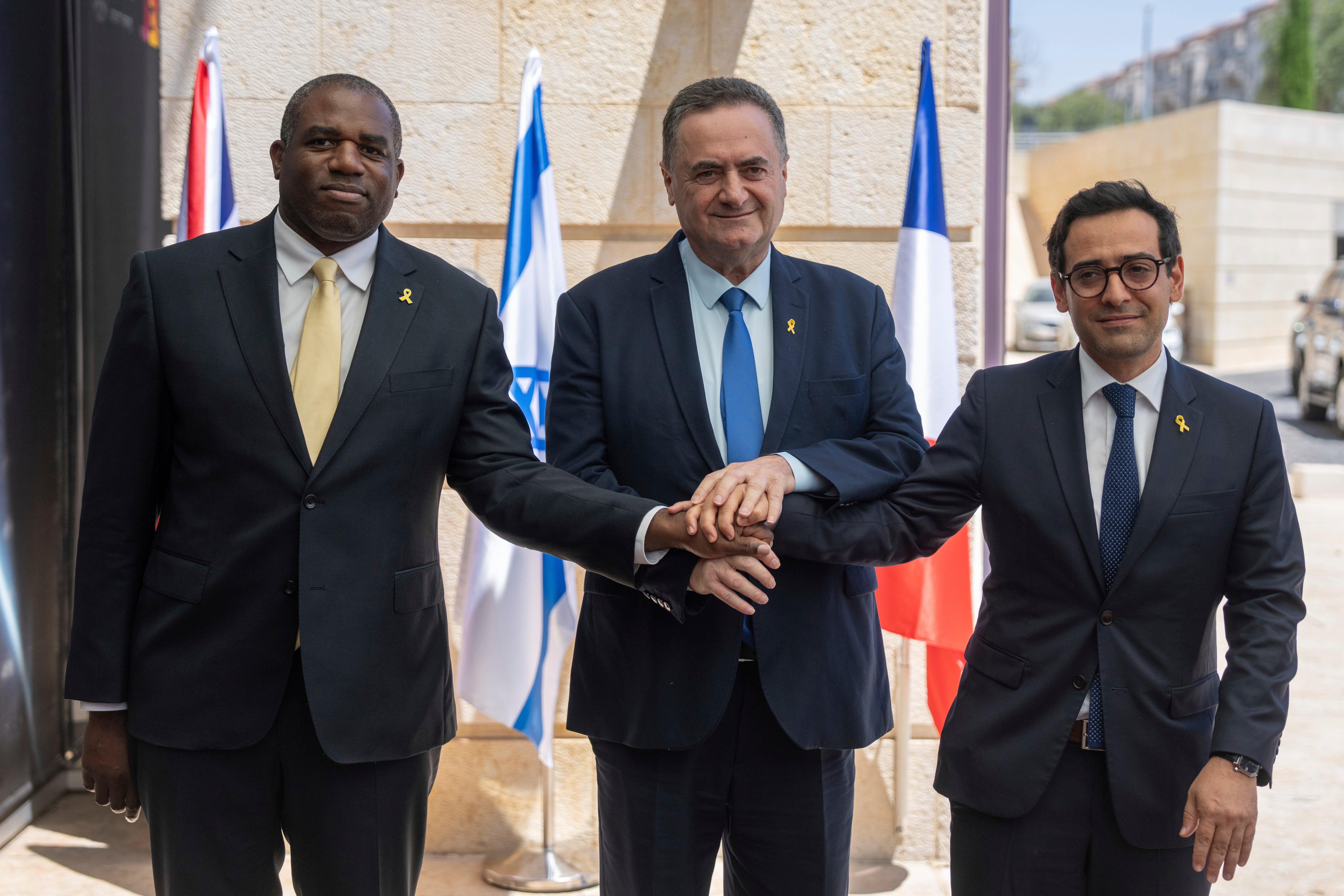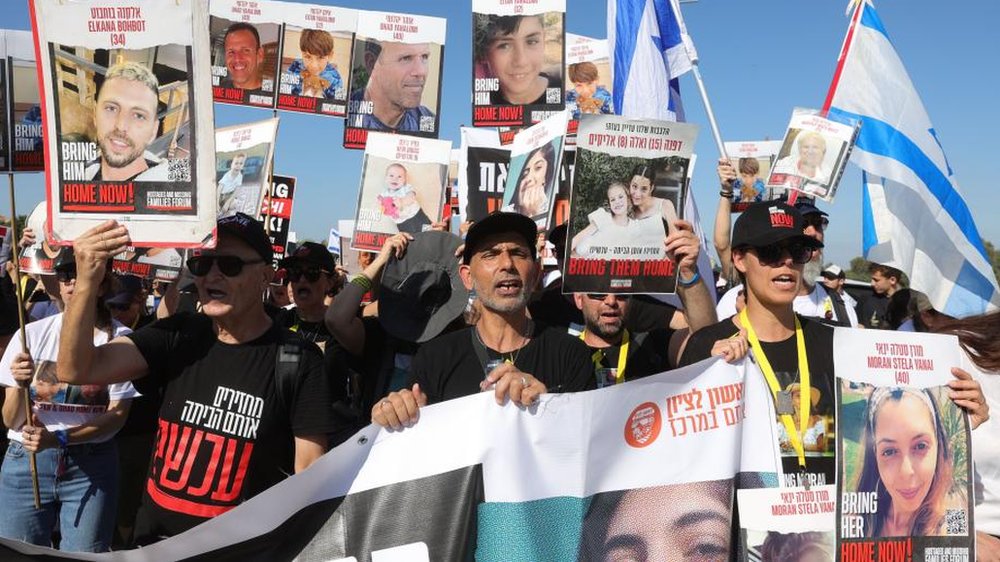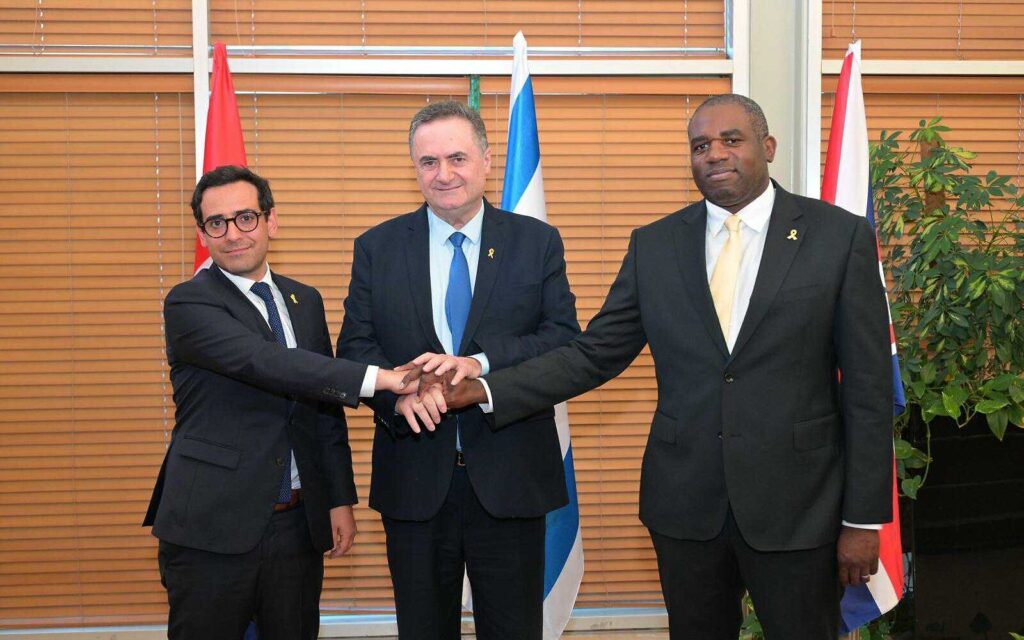
The Secretary of State for Foreign Affairs, David Lammy, stated during his trip to Israel that the “time is now” for a ceasefire in Gaza. Lammy is advocating for a ceasefire that would also reduce the level of hostilities throughout the Middle East, which have brought the area to the brink of a wider war.
Alongside his French counterpart Stephane Sejourne, his visit adds to the mounting pressure for a peace agreement at a time when negotiations are still taking place in Doha to bring an end to the conflict between Israel and Hamas and to ensure the release of Israeli hostages who are still being held inside Gaza. After the number of people killed in Gaza this week surpassed 40,000, Qatar, Egypt, and the United States have held these meetings with the intention of breaking the diplomatic impasse that has been going on for weeks.
Additionally, it took place a short time after Israeli settlers attacked a community in the occupied West Bank close to Nablus, killing at least one Palestinian and drawing a sizable crowd to the funeral.

While Mr. Lammy was in the West Bank, he had the opportunity to meet with Mohamed Mustafa, the Prime Minister of the Palestinian Authority, in Ramallah.
In Jerusalem, he demanded that the captives be released, that aid be permitted to enter Gaza “in the quantities that are necessary,” and that the conflict be put to an end.
“This is a war and a crisis that has taken so many lives across the region, and of course, it all started with the most horrific events that occurred on October 7,” Mr. Lammy added.
But as we get closer and closer to the end of the 315th day of the conflict, the moment has come for a peace agreement to be reached, for those hostages to be returned, for relief to arrive in Gaza in the quantities that are required, and for the combat to come to an end. And of course, it is the message that we have jointly emphasised to ministers today, both in Israel and, of course, in the territories that are currently under occupation.
During a week-long truce that took place in November, more than one hundred hostages were freed. It is thought that approximately one hundred and ten hostages are still within Gaza, while Israeli authorities suspect that approximately one-third of them have been killed.
During his meeting with Israel’s Minister of Foreign Affairs, Israel Katz, and Minister of Strategic Affairs, Ron Dermer, Mr. Lammy stated in advance that there is “no time for delays or excuses from all parties on a ceasefire deal.”
He went on to say that the first day of negotiations in Qatar had been successful and that Israeli officials “hope that we are on the cusp of a deal.” Prior to the start of the negotiations, Hamas, which did not directly participate but would receive updates from Qatar and Egypt, accused Israel of adding new demands to an earlier proposal that had the support of the United States and other international organisations and to which Hamas had in principle agreed. According to Israel, Hamas has added its own fresh demands to the list.

reprisalsIn the aftermath of the death of Hamas leader Ismail Haniyeh on Iranian land at the end of the previous month, tensions have escalated in the region. Tehran has placed the responsibility for the assassination on Israel and has pledged to exact revenge. A top Hezbollah leader was slain in Beirut by Israel just a few hours before Haniyeh was killed, which is another factor that is contributing to growing concerns of a wider war. Also contributing to these concerns is the possibility of reprisals from the Iranian-backed Hezbollah across the border between Israel and Lebanon.
In a discussion that took place on Friday, Mr. Katz informed his French and British counterparts that Israel anticipates receiving backing in its attack against Iran in the event that Iran attacks Israel. “We expect the coalition to join Israel not only in defence but also in attacking significant targets in Iran,” he said. “If Iran attacks, we expect the coalition to join Israel.”
In an interview with Reuters earlier this week, three top Iranian officials stated that the only thing that could prevent Iran from launching direct retaliation against Israel for the death of Haniyeh is a ceasefire agreement in Gaza. There has been no confirmation or denial from Israel regarding its involvement.